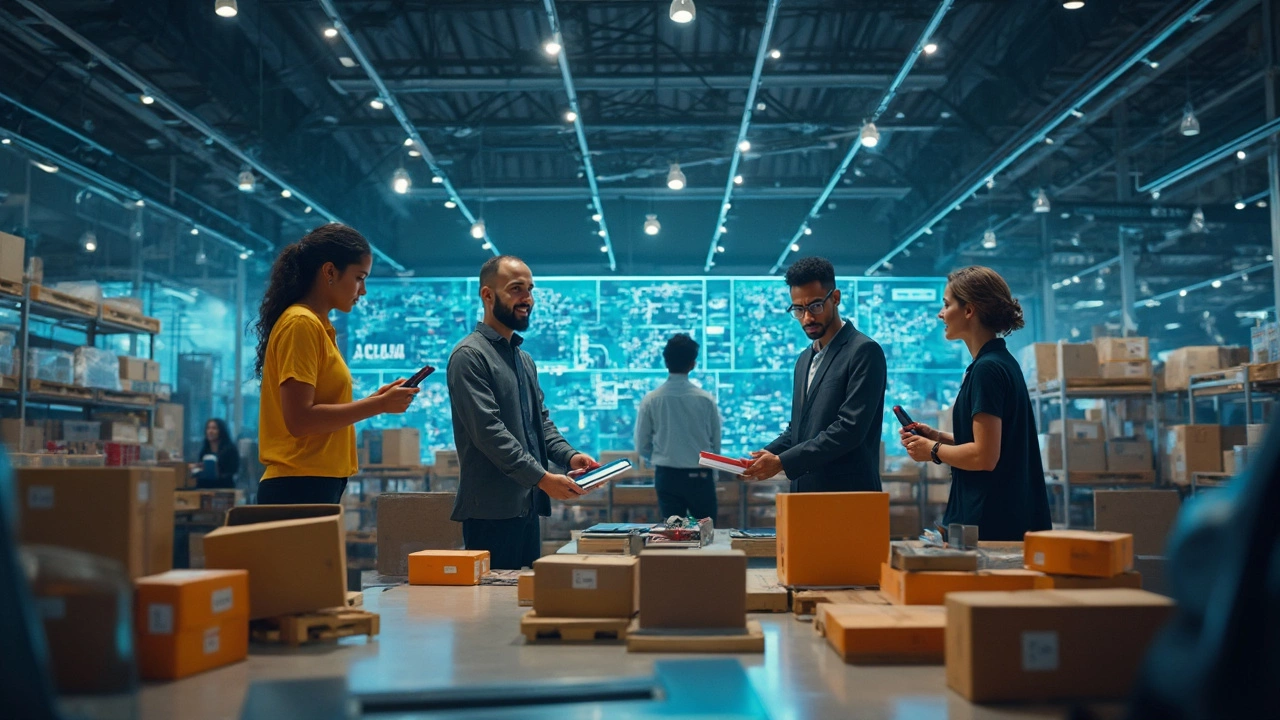Logistics Specialist: What You Need to Know Right Now
Ever wonder what makes a logistics specialist tick? It’s the person who turns a jumble of parcels, trucks, and data into smooth, on‑time delivery. In the UK, companies like Same Day Express Delivery rely on these pros to keep businesses running without a hitch. If you’re curious about the role, the career path, or just need practical tricks for your own shipments, you’re in the right spot.
Key Skills Every Logistics Specialist Should Master
First up, communication. You’ll be talking to drivers, warehouse crews, and customers all day, so clear, quick messages matter. Second, tech savvy. Modern routing tools, real‑time tracking, and warehouse management software (WMS) are the everyday workhorses. Third, problem‑solving. When a truck hits traffic or a parcel is delayed, you need a backup plan on the fly. Pair these with a solid grasp of supply‑chain basics, and you’ve got the core of the job.
How to Jump into a Logistics Career in 2025
Starting out doesn’t require a PhD. Many specialists begin with an associate’s degree or a short‑course certification in logistics. If you’re studying, look for programs that offer co‑op placements – they shave months off the time you need to land a real‑world role. Got experience in retail or customer service? Highlight that; it shows you can juggle orders and keep people happy. Finally, keep an eye on job boards that list top logistics employers – they often mention perks like flexible shifts and fast‑track training.
Once you’re in, the day‑to‑day can feel like a puzzle. You’ll watch warehouse dashboards, adjust delivery routes based on traffic, and chase up carriers who missed a cutoff time. Speaking of cutoffs, knowing the exact time a carrier stops accepting overnight shipments can save you a lot of money. For example, many services have a 5 pm deadline for next‑day delivery; hitting that window guarantees you won’t pay extra fees.
Speaking of fees, courier charges can surprise you if you’re not prepared. Understanding how mileage, package size, and delivery speed affect the price lets you pick the cheapest option without sacrificing reliability. A quick tip: compare live rates from UPS, FedEx, and the Royal Mail before you book. Small differences add up, especially if you ship dozens of parcels a week.
Warehousing is another big piece of the puzzle. Efficient layout cuts walking time for staff and reduces errors. Simple tricks like labeling zones, using barcode scanners, and keeping high‑turn items near the loading dock can boost productivity fast. If you’re dealing with a big inventory, consider tiered storage – 1️⃣ for fast‑moving goods, 2️⃣ for medium, and 3️⃣ for slower items. It keeps the flow smooth and the costs low.
Last‑mile delivery is where the rubber meets the road. Customers expect packages by dinner, and delays hurt reputation. A good logistics specialist monitors real‑time tracking, flags any deviations, and has a backup carrier ready. Knowing the risks – weather, traffic, missed address details – helps you stay ahead. Some companies even offer evening deliveries for those who can’t be home during the day.
If you love the fast pace, the earnings can be rewarding too. Highest‑paid courier roles often combine route optimization skills with sales knowledge. Knowing how to negotiate rates with carriers and upsell premium services can bump your salary up quickly.
Bottom line: being a logistics specialist means you’re part planner, part troubleshooter, and part tech nerd. With the right mix of skills, a solid certification, and a knack for quick decisions, you can turn chaotic shipments into smooth operations – and maybe even land a well‑paid job in the process.
E-commerce Logistics Specialist: Key Role Explained
Curious what an e-commerce logistics specialist actually does? This article breaks down their daily responsibilities, why brands can’t scale without them, and how their work shapes your shopping experience. You’ll get practical facts, see where the big challenges lie, and pick up tips if you’re thinking about this career. Everything’s explained in plain English for real-world understanding.
© 2026. All rights reserved.

